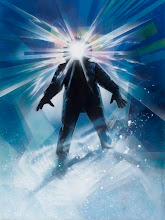
Anderson, M.T. (2006). The astonishing life of Octavian Nothing: Traitor to the nation (Vol. I). Cambridge, MA: Candlewick Press. ISBN: 0-7636-2402-0. p. 351
Genre: Historical Fiction
Interest Age: 14+
Curriculum: American History
Reader’s Annotation
Raised in seclusion by a group of scientists and philosophers in pre-Revolutionary Boston, Octavian learns about freedom, slavery and his place in the world.
Plot Summary
Octavian is the son of an African princess, living in Boston just as the American Revolution is beginning. Octavian’s providers are a group of highly refined and educated philosophers and scientists who provide Octavian with the finest of classical educations. He is taught the classics, music, Greek and Latin. But the true intentions of these men of science are unknown: Why are Octavian and his mother referred to by surname while these men of science are referred to only by number? Why do these men observe and note every detail of Octavian’s life? Octavian soon learns that he himself is a part of a greater experiment.
The Astonishing Life of Octavian Nothing: Volume I explores the turbulent time which gave birth a nation. Freedom, slavery, tyranny, patriotism, populism, class and the American Revolution are all explored through the eyes of young Octavian Nothing.
Critical Review
M.T. Anderson creates a masterful piece of historical fiction. The description of Octavian’s life in the Novanglian College of Lucidity is soaked in mystery and Gothic atmosphere. Everything about Octavian’s life (the men who control it), feels skewed in a dark and sinister manner. Unfortunately for Octavian, these feelings of dread and terror turn out to be almost benign when compared to the pain and horrors of slavery which Octavian endures.
Through Octavian, Anderson shows the reader the brutality, fear, and degradation which slaves (even those who lived in the Northern states) had to endure. When Octavian first encounters the true, unrestrained racism the reader shares his terror; the reader shares his pain when Octavian and his mother are flogged for the first time after insulting the College’s rich, white benefactor. Teens often learn about slavery through texts books and while these texts convey the facts about slavery they sometimes lack the kind of personal, emotional resonance which M.T. Anderson achieves with this story.
Octavian Nothing also examines the beginnings of the Revolutionary War. While the book is in no way a historical account of the Revolutionary War, Anderson does succeed in recreating the setting and the feeling of this chaotic time in American history. Octavian views Redcoats on the streets of Boston, hears stories of unrest and battles with the militias. Octavian even experiences the horrors of battle first hand. Anyone mildly interested in this period of American History feel a sudden urge to jump into the deep end of this history immediately.
Anderson faithfully writes in 18th century English, which can be a bit challenging at times (even for a seasoned reader) but it contributes greatly to an immersive reading experience which draws the reader in to an absorbing story that blends drama and history.
Author Info
M.T. Anderson was born November 4, 1968 in Cambridge, MA. His first young adult novel was Thirsty (1998) about a high school freshman who finds he’s becoming a vampire. He has also written the YA novels Burger Wuss (1999) about love and revenge and The Astonishing Life of Octavian Nothing Vol. I & II (2006 & 2008 respectively). Vol. I won the National Book Award for Young People as well as Printz Honor Book in 2007.
Concerning his own writing Anderson has said, "We are so used to the bizarre images, cabals, rituals, and rites that constitute our lives that they seem natural, even invisible, to us….I admire books that facilitate renewed awareness of the way we live, and this is what I'm attempting in my own work: renewed awareness both for myself and, I hope, for my readers. That's my goal, in any case."
"M. T. Anderson." Contemporary Authors Online. Detroit: Gale, 2008. Literature Resource Center. Web. 17 Apr. 2010.
Book Talking Ideas
1. How did Octavian and his mother come to live at the College of Lucidity?
2. How does Octavian’s life change when Mr. Sharpe takes over the College?
3. How does Octavian experience the early part of the Revolutionary War?
Challenges
There have yet to be any challenges but it does contain brutal descriptions of floggings, beatings and revolutionary battles.
Why I choose this title
Historical Fiction can be useful in both literature and history classes. It can engage students who normally are not interested in history. The book is also an award winner; an exemplary piece of historical fiction.


No comments:
Post a Comment